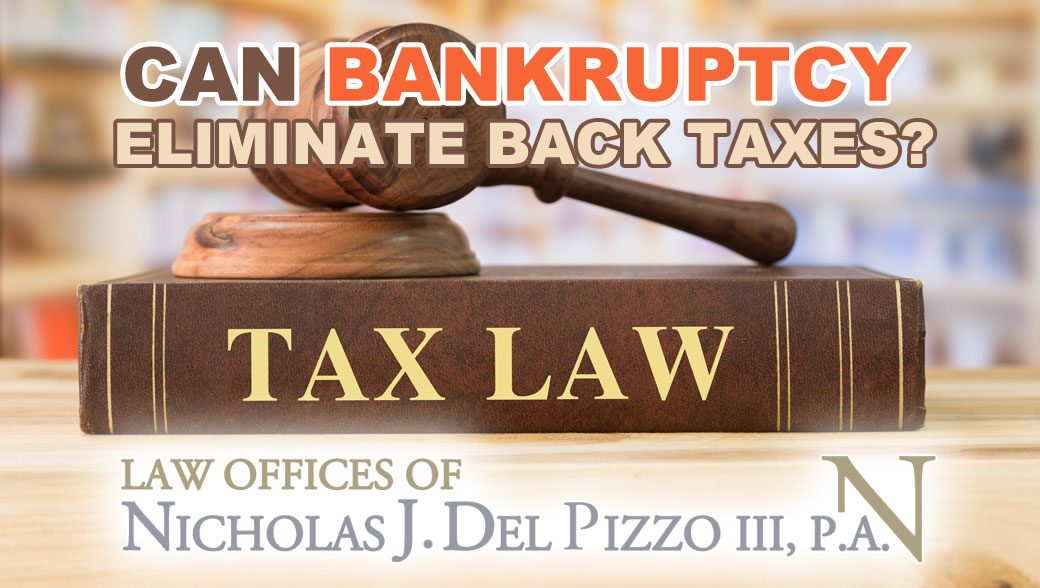When the debt you owe is too much for you to pay back, the stress can be overwhelming. What can help to alleviate that stress is knowing what you will and will not be expected to pay back. Often times individuals filing for bankruptcy will ask, can bankruptcy eliminate back taxes? In order to answer that question you have to understand how bankruptcy affects filing your taxes.
When you file for bankruptcy, you still need to file your taxes. Under the current tax laws, debts that are discharged during a bankruptcy are excluded from income. Please be mindful that any personal expenditures you acquire during personal bankruptcy are non tax-deductible. If you are filing for Chapter 7 or Chapter 13 bankruptcy, you will still have to pay any back taxes in full or as a part of a repayment plan. You can only wipe out your federal tax debts if the following scenarios are true:
- The tax debt is a minimum of three years old.
- You filed a tax return at least two years prior to filing for bankruptcy.
- The tax debt is for income taxes.
- You have not committed willful evasion or fraud.
- The tax debt has not been assessed yet or in the previous 240 days.
About the Law Offices of Nicholas J Del Pizzo
The burden of overwhelming debt can be too much for anyone to handle. That is where the Law Offices of Nicholas J Del Pizzo can help. At our Baltimore Law Office, our knowledge and experience in bankruptcy law can help you get the fresh start you need by wiping out your debts, reorganizing your finances, and saving your home.

